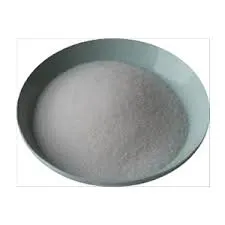- Afrikaans
- Albanian
- Amharic
- Arabic
- Armenian
- Azerbaijani
- Basque
- Belarusian
- Bengali
- Bosnian
- Bulgarian
- Catalan
- Cebuano
- Corsican
- Croatian
- Czech
- Danish
- Dutch
- English
- Esperanto
- Estonian
- Finnish
- French
- Frisian
- Galician
- Georgian
- German
- Greek
- Gujarati
- Haitian Creole
- hausa
- hawaiian
- Hebrew
- Hindi
- Miao
- Hungarian
- Icelandic
- igbo
- Indonesian
- irish
- Italian
- Japanese
- Javanese
- Kannada
- kazakh
- Khmer
- Rwandese
- Korean
- Kurdish
- Kyrgyz
- Lao
- Latin
- Latvian
- Lithuanian
- Luxembourgish
- Macedonian
- Malgashi
- Malay
- Malayalam
- Maltese
- Maori
- Marathi
- Mongolian
- Myanmar
- Nepali
- Norwegian
- Norwegian
- Occitan
- Pashto
- Persian
- Polish
- Portuguese
- Punjabi
- Romanian
- Russian
- Samoan
- Scottish Gaelic
- Serbian
- Sesotho
- Shona
- Sindhi
- Sinhala
- Slovak
- Slovenian
- Somali
- Spanish
- Sundanese
- Swahili
- Swedish
- Tagalog
- Tajik
- Tamil
- Tatar
- Telugu
- Thai
- Turkish
- Turkmen
- Ukrainian
- Urdu
- Uighur
- Uzbek
- Vietnamese
- Welsh
- Bantu
- Yiddish
- Yoruba
- Zulu
Novemba . 25, 2024 14:25 Back to list
Veterinary Injectable Multivitamin Formulations for Enhanced Animal Health and Nutrition
Multivitamin Veterinary Injection Importance and Applications in Animal Health
In the realm of veterinary medicine, the health and well-being of animals are paramount. Just as humans benefit from a balanced intake of vitamins and minerals, animals also require essential nutrients to maintain optimal health. One effective way to ensure that animals receive these vital nutrients is through multivitamin veterinary injections. These injections play a crucial role in the prevention and treatment of nutritional deficiencies in different species of animals.
Multivitamin veterinary injections are specially formulated solutions that contain a combination of essential vitamins and minerals tailored for various animal species. These injections are designed to deliver a precise dosage of nutrients directly into the animal's bloodstream, ensuring rapid absorption and effectiveness. Commonly administered vitamins in these formulations include B-vitamins, vitamin A, vitamin D, and vitamin E, among others. Minerals such as calcium, phosphorus, and selenium are also frequently included to support overall health.
One of the main advantages of multivitamin injections is their capability to address deficiencies that may arise from poor diet, malabsorption issues, or increased nutritional demands due to illness, stress, or growth. For instance, young animals or pregnant and lactating females often experience heightened nutritional requirements. In such cases, a multivitamin injection can provide immediate support, helping to prevent developmental disorders or complications during gestation.
multivitamin veterinary injection

Veterinarians often recommend these injections for various species, including dogs, cats, horses, cattle, and even exotic birds. Infections, chronic illnesses, or surgical recovery can deplete an animal's nutrient reserves, making multivitamin injections a valuable tool in promoting recovery and enhancing the immune response. They are particularly beneficial during periods of low appetite or when oral supplementation is impractical.
The administration process of multivitamin injections is relatively straightforward. While they can be administered by pet owners with proper training, it is generally advisable for a veterinarian to perform the injection to ensure correct dosage and technique. The veterinarian will evaluate the specific needs of the animal, preparing an appropriate multivitamin formulation tailored to its individual health status and dietary deficiencies.
While the use of multivitamin injections is generally safe, it is essential to understand that they should not be used as a substitute for a balanced diet. They serve as a complementary measure to support animals that may not be getting adequate nutrition through their regular food intake. Over-reliance on injections without addressing underlying dietary issues can lead to imbalances and potential health risks.
In conclusion, multivitamin veterinary injections are a vital component of animal healthcare, offering a swift and effective means of addressing nutrient deficiencies. They empower veterinarians to provide enhanced care to their patients, especially in critical situations or when dietary needs are heightened. By ensuring that animals receive the necessary vitamins and minerals through these injections, we can significantly improve their overall health and quality of life, paving the way for a happy and thriving existence.
-
Guide to Oxytetracycline Injection
NewsMar.27,2025
-
Guide to Colistin Sulphate
NewsMar.27,2025
-
Gentamicin Sulfate: Uses, Price, And Key Information
NewsMar.27,2025
-
Enrofloxacin Injection: Uses, Price, And Supplier Information
NewsMar.27,2025
-
Dexamethasone Sodium Phosphate Injection: Uses, Price, And Key Information
NewsMar.27,2025
-
Albendazole Tablet: Uses, Dosage, Cost, And Key Information
NewsMar.27,2025













